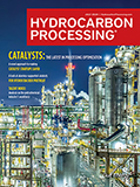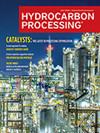Slumping fertilizer producers gear up to fill truck demand
Aug 24 (Reuters) - Fertilizer companies, coping with a stubborn price slump, are banking on tighter emissions standards for diesel trucks in the US and Europe to buoy their balance sheets.
Nitrogen fertilizer producers including CF Industries Holdings Inc and Agrium Inc are accelerating output of diesel exhaust fluid (DEF), a water and urea solution used to reduce emissions of nitrogen oxide. The niche market offers premiums of $50 to $100 per short ton over the crop nutrients they sell at prices that are depressed due to excessive supplies.
DEF demand has risen since the US Environmental Protection Agency set tighter emissions controls in 2010 for diesel trucks made by Volvo, Daimler AG and others. The EU, in which DEF is known as AdBlue, introduced similar legislation in 2013.
Fertilizer companies have increased DEF output this year to coincide with openings of several new or expanded US nitrogen plants, and as lower-emission trucks replace aging vehicles on the road.
"We love it - it's a great business for us," Bert Frost, CF Industries' senior vice-president of sales, market development and supply chain, said in a recent interview. "It builds our customer base and gives us (options) on production."
CF Industries started production this year in Louisiana to turn 400 Mtpy of urea into DEF. Altogether, CF, the largest North American producer by capacity, can convert 800 Mtpy of urea into DEF.
DOUBLING DEMAND
Total US demand for DEF is about 1 MMt of urea equivalent, a fraction of North America's annual consumption of 14 MMt of urea, Frost said. But he added that DEF demand is likely to double within five years as 60% of US heavy diesel trucks are replaced by models with lower-emission engines.
Engine technology called selective catalytic reduction (SCR) uses DEF to trigger a chemical reaction that converts nitrogen oxides, a pollutant, into natural components of air that are then expelled through the tailpipe.
The market hinges on the administration of US President Donald Trump, which pulled the US out of the Paris climate change agreement, continuing the country's move to lower-emission trucks.
The US administration is unlikely to roll back emissions standards because trucking companies benefit from using more fuel-efficient vehicles and manufacturers have made huge investments in technology, said Allen Schaeffer, executive director of Diesel Technology Forum, a nonprofit group.
Global consumption of DEF may reach 10 MMt of urea equivalent annually by 2027 from 2 MMtpy currently, said Adam Panayi, research manager at Integer Research.
The market for DEF will peak in the US and Europe toward the end of the 2020s, while potential growth continues in developing markets such as China and India, he said.
There may already be too much DEF available, said Andy Austin, senior vice-president of specialty products at Mansfield Energy Corp, which buys DEF from CF, Yara International ASA and Potash Corp of Saskatchewan, and distributes it to XPO Logistics Inc, United Parcel Service Inc and FedEx Corp for their trucks.
"I would say there is a glut," Austin said. "That risk is certainly there for (producers)." (Reporting by Rod Nickel in Winnipeg, Manitoba; Editing by Matthew Lewis)






Comments